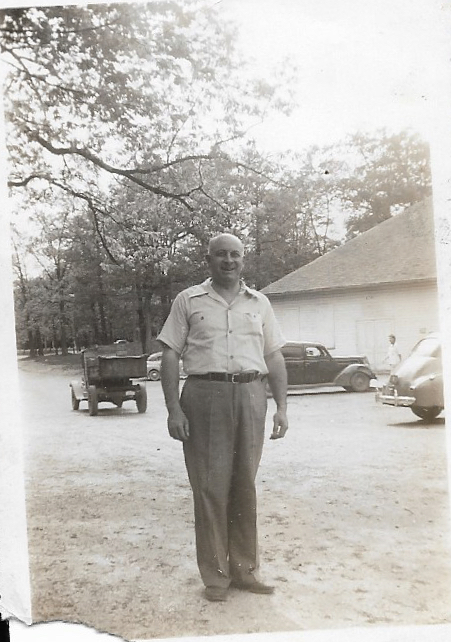Southern Legitimacy Statement: While standing up in a rowboat, I slapped six-foot alligator gars on the head with my oar, walked over a rattlesnake so sound asleep in the sun that it didn’t wake up, turned over rocks to see if I could find that black spider my Gramp warned me about, the one with the red hourglass on it. When the mule Jack died, Gramp piled up old tires on top of him, doused kerosene all over the tires and threw matches on the whole pile until black smoke soared up from the flames. My cousin Butch and I rowed the boat for three miles down the Caches Creek to visit the Stallard girls. When we returned to the boat, there were two cotton-mouthed moccasins sliding around the bottom of the boat. Gramp drove the pickup around to pick us up, used tree branches to get the snakes out of the boat, and threw it in the back of the truck. I made taffy, watermelon rind pickles, grape juice and Possum Kingdom Dam Cake with Grandma. I dropped Great Grandmother Louise’s Strawberry Shortcake Deluxe on the floor when a scorpion in the kitchen stung my bare foot.
After all that, I sure hope I qualify. (ed. note: and she certainly does qualify!)
The Pickles
When I was nine years old, I knew nothing about poverty. I was excited just to be playing with the Pickle children in the grapevines hanging from the oak trees in front of my grandparents’ house. We lived on a ranch, and I didn’t often have children to play with. The Pickle children were six and eight, a boy and a girl. I don’t remember their names.
My grandfather hired their father, Mr. Pickle, to hoe the gullies between the rows of rice plants to keep the water flowing and to pack the black soil around the mounds in which the rice plants grew. The only tool he needed was a hoe and the stamina to work under a hot sun all day while his children and I played in the shade beneath the tree branches.
When it was lunchtime, he walked from the rice fields to have lunch with his children. Before lunch he read a passage from the Bible, and then he and the children said the Lord’s Prayer together. Lunch consisted of saltine crackers and sardines with water from a thermos. He opened the can of sardines with a pocket knife, placed a sardine on a cracker, and handed one to each of the children. Young as I was then, I’d never experienced hunger, but I recognized it. While eating each sardine and cracker, they stood rooted to the spot and waited for the next one. After they’d eaten all the sardines and crackers, they turned away and went quietly to sit on a grapevine. He asked each of the children to read a short piece from the Bible.
When he went back to work, I asked them where their mother was. They said she left for Houston a year ago and didn’t return. I was stunned. Here were two motherless children starving before my eyes.
I ran back to my grandparents’ house and found my grandmother putting away the lunch she made for my grandfather. He was taking a nap before returning to his boat shop in town. I told her the children were hungry, and their mother had left them. I wanted to take them the rest of the ham, green beans, potatoes and biscuits.
You have to understand my grandmother was a Christian woman who read the Bible every day, played the organ in church, and was the first to cook and deliver a meal to anyone in the congregation who suffered a death or an illness in the family. In the case of the Pickles, though, her reaction was so incompatible with all I knew and felt about her that I could not reconcile it with my love for her.
“No, darling, we can’t do that, “ she said with a stern face. “We can’t help them.”
“They’re hungry.”
“Their daddy has to take care of them.”
“But can I take them some cookies and grape juice?” I loved her cookies: oatmeal, moist but chewy and packed with pecans, raisins, and brown sugar. She made great grape juice, too, from grapes we picked in the Fall. I took all the cookies from the jar, stuffed them in a paper bag, and found a quart mason jar to pour the juice into.
“Now, we can’t do this every time Mr. Pickle comes, here,” she said. I didn’t play any attention to her, I was so happy that they’d have something to eat. I ran out the door with the cookies and juice so fast that I forgot glasses for the juice. They drank out of the jar, and their cheeks turned to grape smiles. They chewed the cookies slowly, swallowed them quickly, and kept looking in the bag to see how many were left.
The little girl’s dress, formerly a party dress with shiny ribbons, was frayed, the boy’s overalls were too short, and their shoes were scuffed and cheap. What could they do, being children like me? What if my grandparents died, and my mother ran away? What would I do?
Mr. Pickle only worked one day because that’s all the time it took to complete the job. He couldn’t have made much money. What were the children going to do, how would they eat, where would they sleep? I worried so much that I couldn’t help them, and I felt both mad and sad. I couldn’t understand why Grandmother wouldn’t help them either. Now I’m older, and I know: They were poor whites, “white trash,” and not even god cared what happened to them.







